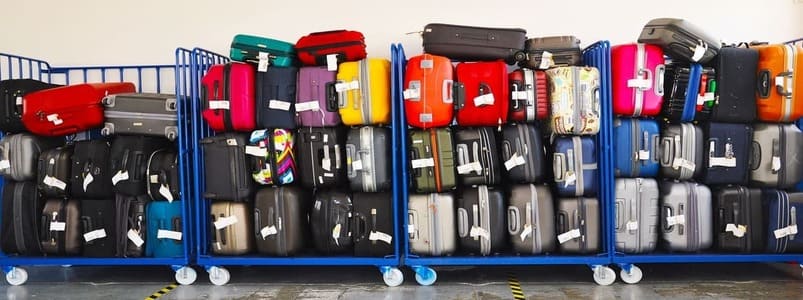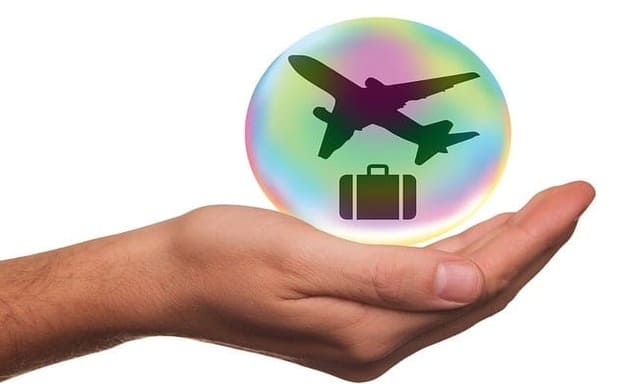
It’s important to understand Indonesia’s customs regulations before you arrive in the country. This can help you avoid legal complications.
While some items can be brought into the country with a proper customs declaration, others are strictly prohibited.
This guide will outline the restricted goods for entering Indonesia to help guarantee entry with no problems at customs.
Prohibited Items: What You Cannot Bring into Indonesia
To protect public safety, cultural values, and biodiversity, Indonesia enforces strict restrictions on certain items. Here’s what is completely banned:
Counterfeit and pirated goods
Fake designer products, unauthorized software, and pirated media are not permitted. These bans protect intellectual property and encourage fair trade.
Narcotics and controlled substances
Illegal drugs, including narcotics and unapproved prescription medications with controlled ingredients, are strictly forbidden. Severe penalties, including imprisonment or worse, apply for violations.
Endangered wildlife and protected plants
Bringing in endangered species, wildlife products, or invasive plant varieties is prohibited to safeguard Indonesia’s ecosystems. Exotic pets and rare plants are included in this ban.
Pornography
Explicit media in any form, such as books, videos, or digital files, is banned. This regulation reflects Indonesia’s cultural and moral standards.
Firearms and explosives
Guns, ammunition, and explosive materials require explicit government authorization. Unauthorized importation is a serious crime with severe consequences.
Certain traditional medicines
Medicines derived from endangered species or containing animal-based products are prohibited. Always check with customs if unsure about your medication.
Restricted Items: What You Must Declare
Certain items are allowed into Indonesia under specific conditions, but must be declared using the Indonesia Electronic Customs Declaration (e-CD):
Medications
If you need to bring medication containing narcotics or psychotropics, you must carry supporting documents, such as a prescription or a doctor’s note. Failure to declare these could result in confiscation or legal action.
Food items
Travelers bringing food, particularly perishable or processed items, must declare them. Certain foods may be subject to health and safety inspections.
Currency over IDR 100 Million
Bringing currency exceeding IDR 100 million (approximately USD 6,400) must be declared to customs. This guarantees compliance with anti-money laundering regulations.
Alcohol and tobacco products
Travelers are allowed a limited quantity of tobacco products (200 cigarettes, 25 cigars, or 100 grams of tobacco) and 1 liter of alcoholic beverages. Quantities exceeding these limits must be declared, and import duties may apply.
Electronics and high-value goods
Electronic devices and items exceeding the duty-free limit (US$ 250 or up to US$ 1000 per family) must be declared. This includes high-value items such as laptops, cameras, and smartphones.
What Could Happen if I Don’t Comply With Indonesian Customs Rules?
Failure to comply with Indonesia’s customs regulations can result in:
- Confiscation of undeclared or prohibited items.
- Fines or import duties for restricted goods.
- Severe penalties, including imprisonment, for narcotics violations or smuggling firearms.
This is why it’s so important to make sure you follow every regulation.
Important Customs and Arrival Tips
To avoid complications at the border, adhere to these tips:
- Complete the e-CD Form: Accurately declare all items, including restricted ones.
- Double-Check Medication Rules: Verify that your medication is permitted and carry necessary documentation.
- Check if you need a visa: Make sure you have the correct visa before you travel.
- Respect Cultural Sensitivities: Avoid bringing prohibited items like pornography or counterfeit goods.
By understanding Indonesia’s customs rules and adhering to the regulations, you can guarantee a smooth entry into the country. Be prepared by completing the electronic customs declaration form in advance and declaring any restricted items.
Traveling responsibly helps preserve Indonesia’s rich culture, safety, and environment for everyone.


